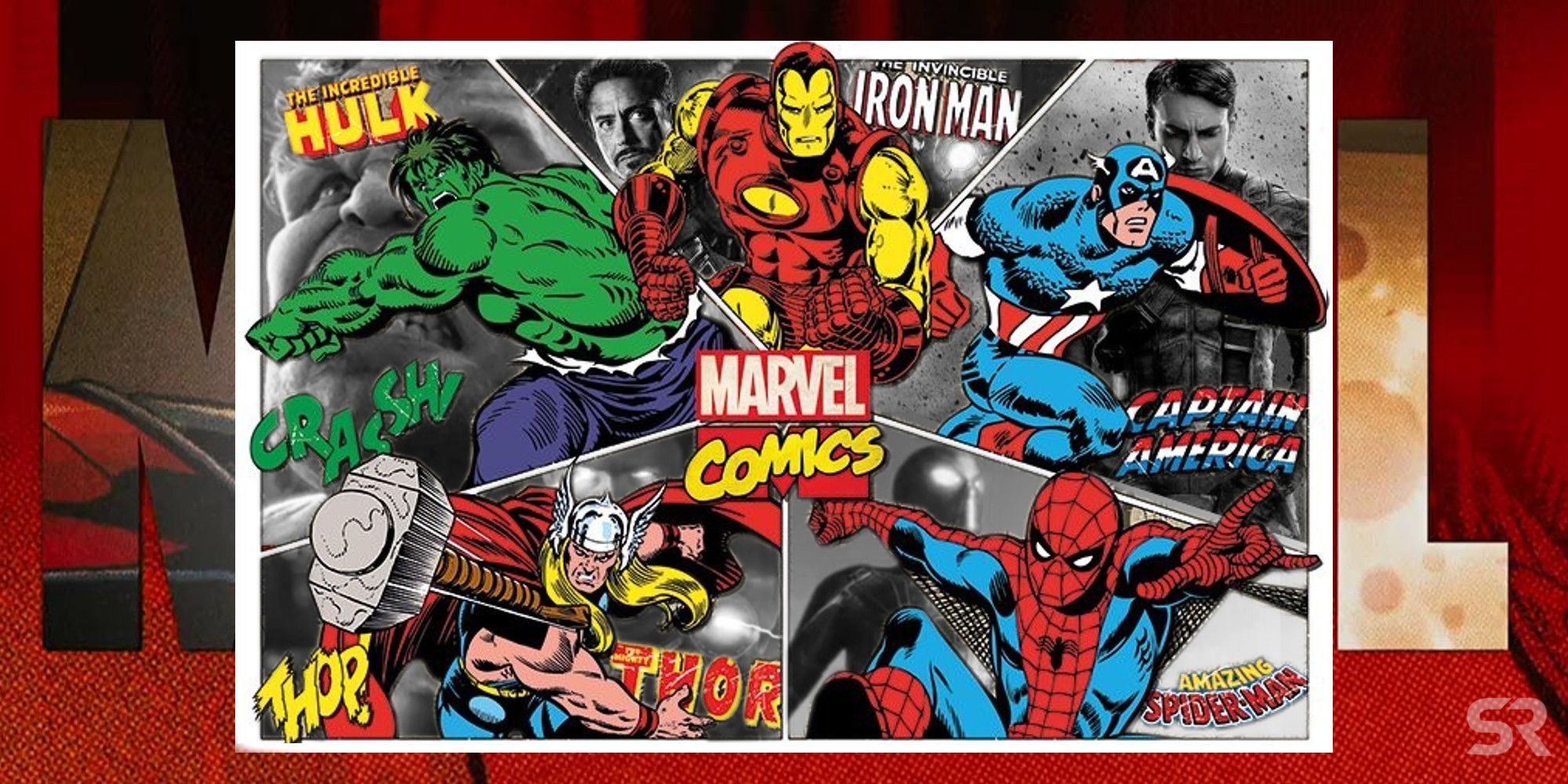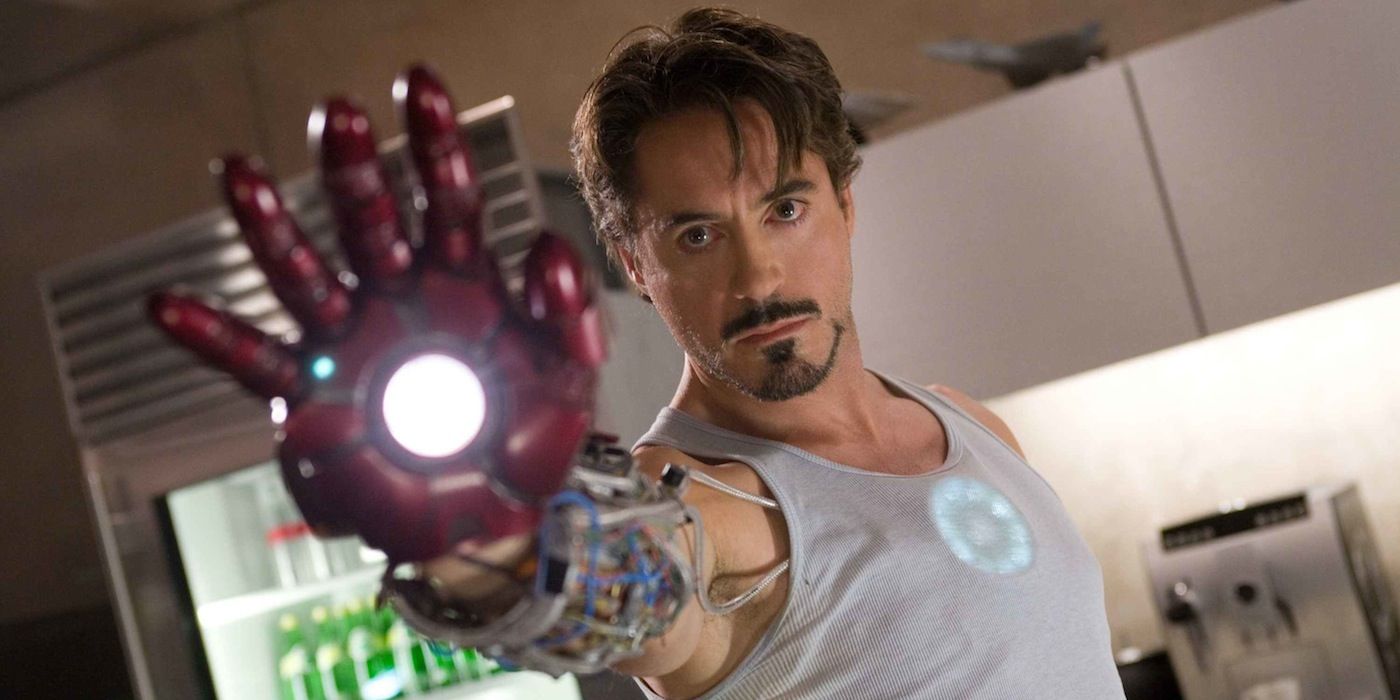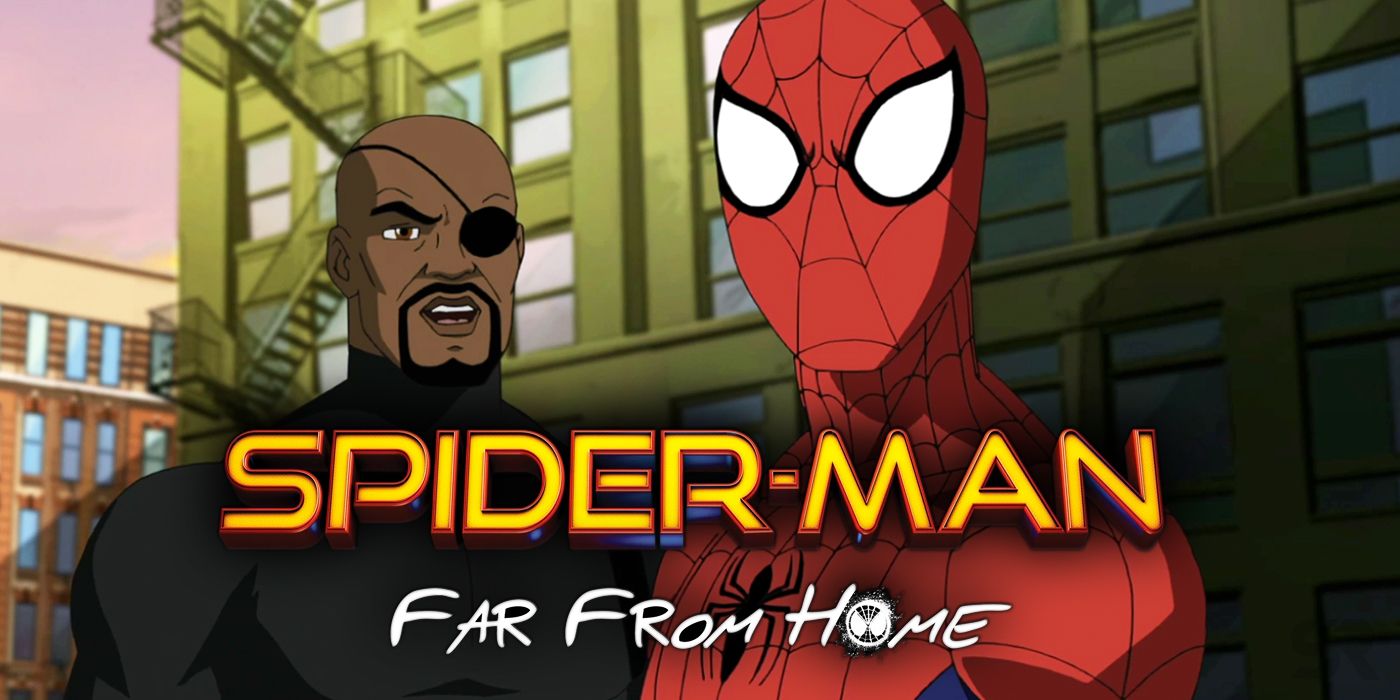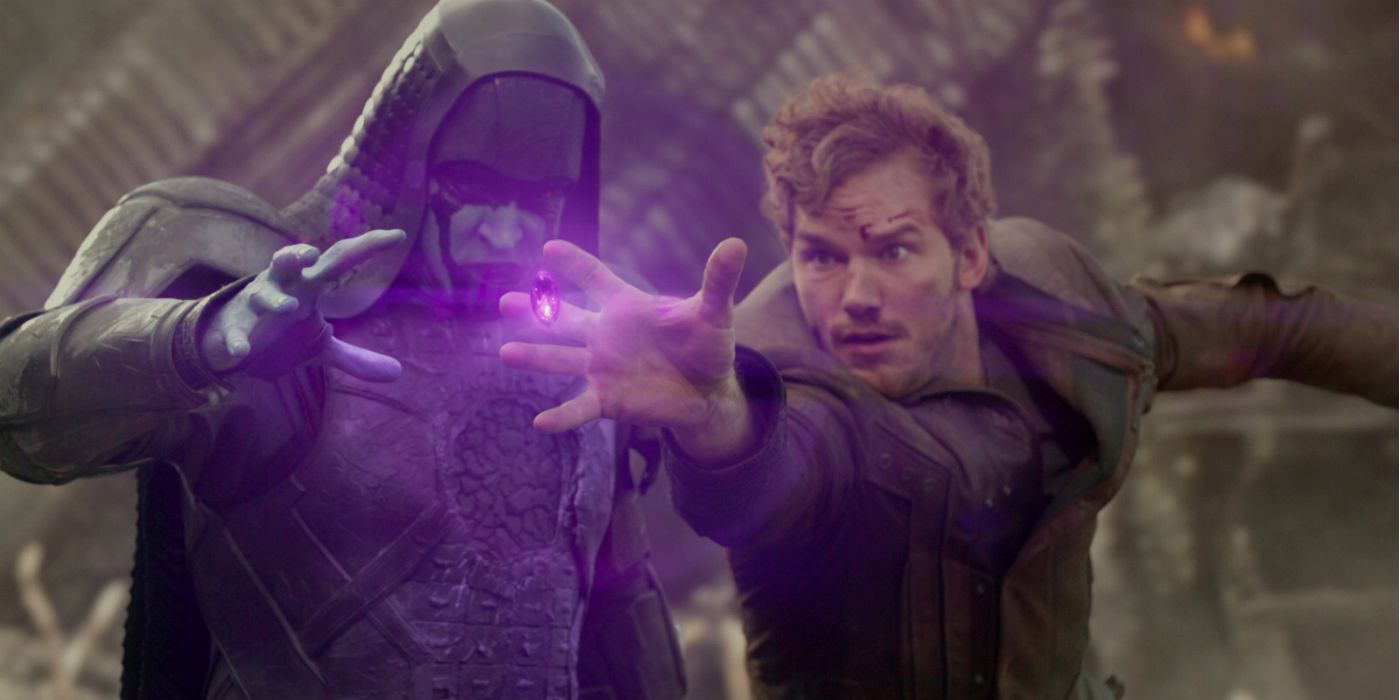Over a decade into the MCU, Marvel Studios is finally at the point where they can stop pretending to simply "adapt" comic book stories. That may seem to undermine the very idea of the Marvel Cinematic Universe, but looking ahead to their future slate, it's clear Marvel is blazing a fresh trail - one that even the most experienced comic book reader will be surprised at.
Of course, Marvel movies are intrinsically based on comic books, bringing some of the biggest names in the medium to the big screen. However, even in the early days things were different. As Avengers: Infinity War co-director Joe Russo observed, "I think that Marvel jumped off with this cinematic experiment that they started 10 years ago with a narrative that diverts from [the comics]." Indeed, 10 years and 20 movies later, they've built up to the point that the differences are unavoidable.
Related: Avengers: Infinity War's Ending Was Very Different In The Comics
Howe divergent is the Marvel Cinematic Universe going to be heading into Phase 4? And should this cause comic book lovers to despair, or rather to celebrate that their movies have outgrown the medium that inspired them? Let's take a look at Marvel's approach.
- This Page: Marvel Movies Never Fully Adapted Comics
- Page 2: Upcoming Marvel Films Move Away From The Comics
- Page 3: Why This Is A Very Good Change
Marvel Movies Adapt Comic Book Stories... Sort Of
The first phase of the MCU was essentially the age of the Origin Story, and as a result the movies drew liberally from the comics. There were two sources of inspiration; the original, classic comic books such as Tales of Suspense #139 (Iron Man) or Captain America Comics #1, and Marvel's Ultimate relaunch in the early 2000s. This relaunch saw Marvel reimagine their classic heroes if they'd originated in the present day, and it provided a template for Marvel Studios to do the same. Perhaps the most visible nod to the Ultimate Comics inspiration was the casting of Samuel L. Jackson as Nick Fury; back in 2002, Bryan Hitch deliberately modeled the Ultimate version of Fury on Jackson (it was even signposted in dialogue, with the Ultimates discussing who should play them on the big screen; Fury responded, "Mr. Samuel L. Jackson, of course, no discussion").
There was one key difference, though, and it was a strategic decision made at the end of Iron Man. The film closed with Tony Stark holding a press conference in which he outed himself as the titular hero. Although technically this was in line with the comics, where Stark had gone public back in the '90s, it proved to be a defining moment in the MCU. Marvel realized this decision both simplified their narratives and allowed them to tell a different kind of superhero story; as a result, they dropped the secret identity theme altogether. That's most visible with Thor, which barely flirted with Thor's human alter-ego Donald Blake
Related: Iron Man's Best Move Was Destroying the Secret Identity Trope
Moving away from the origin stories, a number of the films have been quite open about their comic book roots. Captain America: The Winter Soldier, for example, was adapted from Ed Brubaker's classic 2005 run, specifically Captain America #1-14. That had revealed Steve Rogers' old wartime colleague Bucky had been captured and brainwashed as an assassin known as the Winter Soldier. Captain America: Civil War is inspired by the 2006-2007 Civil War miniseries, although there the story is heavily adapted to fit into the MCU's overarching narrative; the Winter Soldier plays a major role that's completely different to the comics, and the entire film is influenced by the tragedy of Sokovia's destruction in Avengers: Age of Ultron. By this point, the differences between the comics and the movies had begun to build up, and they were becoming particularly visible.
Avengers: Infinity War is the classic example. It's a blend of Jim Starlin's Thanos Quest and Infinity Gauntlet miniseries, culminating in a cliffhanger ending that's directly inspired by the comics. At the same time, though, everything has been switched up; Thanos's motivation is so different that he might as well not be the same character at all. The film's directors insist that's because this is a different universe. As Joe Russo observed, "As a comic book fan, I think it’s fun to take elements from the books that I identify with. But if I want a literal interpretation, I’ll just read the book."
Page 2: Marvel's New Approach To Telling Stories
Upcoming Marvel Movies Are Far Removed From The Comics
Marvel's upcoming film slate is currently the smallest its been since 2014, with only three of the next movies confirmed; Captain Marvel, the as-yet-untitled Avengers 4, and Spider-Man: Far From Home. The most striking aspect of all three films is how they're unlike anything we've seen before in the comics.
Captain Marvel looks set to be the closest to its ostensible comic book inspiration. The costume design along suggests that it will be heavily influenced by Kelly Sue DeConnick's popular run, while Marvel has confirmed it will involve the Kree-Skrull War. At the same time, though, this story is being woven in the narrative of the MCU in a very distinctive way. The film is set in the '90s, meaning Carol Danvers will be an established superhero who suited up decades before Tony Stark. What's more, Carol's origin story will be interwoven with a never-before-seen S.H.I.E.L.D. adventure, with Nick Fury and Phil Coulson appearing.
Related: Captain Marvel May Have Direct Link To Iron Man 2 & The Avengers
Moving on to Avengers 4, the Russos have suggested it's an original story, one never seen in the comics. Asked about which books he'd recommend reading in preparation, Joe Russo noted that he doesn't believe there are any comics that correlate to it. "I think we're in pretty fresh territory with Avengers 4... I can't think of any comics in particular that would have value." The little we do know suggests that some comic book elements will be blended into the narrative, most notably the idea of the Hulk personas blending into a single entity, or Hawkeye's taking up a darker identity after the deaths of his family. But the main arc itself is something fresh and unique, and any comic-book-accurate ideas will be blended together in a way we've never seen before.
The aftermath of Avengers 4 is expected to transform the MCU, with contracts for big-name actors like Chris Hemsworth, Chris Evans, and Robert Downey Jr. believed to be coming to an end. That in itself will force the MCU to move even further away from the comics, where major characters never die (or, at least, not for long). Tony Stark's big-screen story will come to an end, even as the print hero's adventures continue; Steve Rogers will hang up his shield in the MCU, but the star-spangled Avenger's stories will run on for years to come in the comics. As a result, the differences between the movies and the comics will only increase with the passage of time.
It's unsurprising, then, that there seems to be absolutely no comic book precedent for Spider-Man: Far From Home - the first film after Avengers 4. The wall-crawler seems to be swapping the Avengers for S.H.I.E.L.D., an approach that's reminiscent of the Ultimate Universe version but really seems inspired by various Spider-Man animated shows. The Spider-Man of the comics definitely didn't go on any summer vacations to Europe while he was a teenager, and the idea of him traveling the continent hunting Mysterio is fresh and original. Even the most avid comic book reader has nothing to draw upon, making this adventure a complete mystery.
Page 3: Why This Is A Very Good Change
This Was Always the Case (And Not Just for Marvel)
Comic book readers can be forgiven for being startled at the divergence between the comics and the movies, but in reality, it's always been there. Take Guardians of the Galaxy, a team who were drastically reinvented by James Gunn - to the extent that the comics switched their characters up to align to the films. The sequel went further with this approach, ditching the idea that Peter Quill is the son of a galactic emperor. "I do not like J’son," Gunn told fans on Facebook Live. "I just don’t like the character very much. I also thought it was too much like a Star Wars thing because of the royalty and all of that." Instead, Gunn opted to make Quill a human/Celestial hybrid. And Adam Warlock, when he finally makes his debut in the MCU, will be an alien of the race known as the Sovereign - not a perfected human being.
Related: Marvel Movies: The Alien Races You Need To Know About
So just why has Marvel previously had a reputation for being comic-book-accurate? It's because the studio understands that the stories aren't what's important, but the character. Iron Man may have revealed his identity straight away, Thor has no counterpart, and Civil War split the Avengers over Bucky, but through all of these events, the characters were at their core. Spider-Man: Homecoming stripped away a lot of Peter Parker ephemera, but every choice was made with the decades of print history in mind. Black Panther is strongly inspired by Brian Stelfreeze's beautiful artwork, which redesigned the nation of Wakanda for the twenty-first century. And Thor: Ragnarok paid homage to the designs of Jack Kirby, even though Taika Waititi told a story bearing next to no similarity to the comic book arc of the same name.
It's not, and never was, about bringing the comic book stories to film as a one-to-one translation: it was using constituent elements to tell big screen twists on classics. This was what Marvel was doing from the start, and can be seen in all manner of other productions. Batman v Superman: Dawn of Justice, for example, is a brand new story that lifts its scenes and imagery from Frank Miller's The Dark Knight Returns, and the classic "Death of Superman" arc. Wonder Woman pays homage to the Amazonian Princess's origin, but it does so by placing her against the backdrop of the First World War. Deadpool is true to the tone and style of the comics, but liberally redesigns characters and scenarios.
-
The next year marks something of a breaking point between the comics and the movies; the MCU's ongoing narrative is blazing a trail into territory the comics have never explored. But that doesn't mean the comics will cease to have an impact on these films; rather, it means that their impact will be more subtle and nuanced, visible in the themes and concepts, the tones and styles, and - above all - the visuals.






